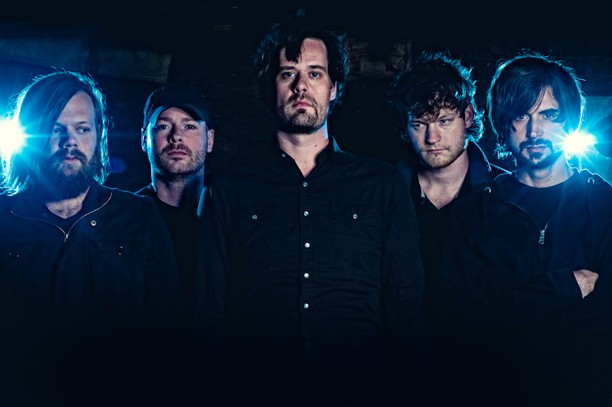Lyricism and vocals seem to be as necessary to popular music as melody itself. But since the voice is most often a band’s hallmark, rather than the emotion it conveys musically, how do you carve a niche without a voice?
For Erin Burke-Moran of Massachusetts post-rock mainstay Caspian, it’s a matter of experience and how life lessons translate into the band’s work. On 2012’s Waking Season, Caspian’s has refined his signature sound more than ever before.
“Part of what helped us write this last album was just all the touring that we did and different things we saw,” Burke-Moran said. “The more you experience, the more you have to put back into your art.”
That artistic return shows on Waking Season, the band’s third LP since 2007. There’s hardly an element of repetition to the record, as it shifts seamlessly from texture to texture throughout each track. That fluid nature was no mistake. “If you just do something, and do something for a long time and shoot for excellence, then you get somewhere with it,” Burke-Moran said.
Hard work must pay off, as Waking Season was named Spin Magazine’s “Best Post-Rock Album of the Year” in 2012, and earned equally high marks from Alternative Press.
Unlike some of its musical peers, Caspian doesn’t eschew the “post-rock” label. Rather, the band embraces it wholeheartedly, subverting the pretension characteristic of post-rock bands that attempt to be relevant outside of their realm.
“Post-rock kind of has this connotation of no one wanting to be a part of it in the goofiest way,” Burke-Moran explained. “It’s a wave, and if you’re going to be a part of anything, you have to hop on something that’s bigger than yourself.”
Burke-Moran is a perfect example of how self-awareness is crucial for staying true to one’s art, and his view of instrumental music’s role in society is just as reflective.
There may be a line drawn between bands like Caspian and classical composers, as both genres rely on musical dynamics to convey emotion.
Yet for Burke-Moran, Caspian’s brand of music isn’t meant to be consumed in a single serving. To really grasp what the band is trying to tell you, its work must be revisited. “You kind of need to listen to it — it’s not something that people always do because it’s kind of fed to us with pop culture,” he said. “It’s good for people to be challenged that way.”
It seems that the introspective nature of grandiose instrumental music is finally seeing a resurgence. The reception of bands like Mogwai and Explosions In The Sky is an indication of post-rock’s increasingly mainstream status, though Caspian’s use of texture and emotive dynamics sets it apart from its peers.
Caspian may have needed this popularity all along. While Burke-Moran said he feels that Waking Season “was a culmination of what Caspian was trying to do for a while,” the newfound acceptance of the band’s sound seems to be an indication of longevity.
It’s safe to assume that the Caspian’s success with Waking Season will be nothing but a positive experience to channel into a new chapter of the band’s history. However, Burke-Moran said he isn’t quite sure yet what direction Caspian will take next. “I don’t know where you find inspiration exactly, but hopefully it finds you,” he said.









